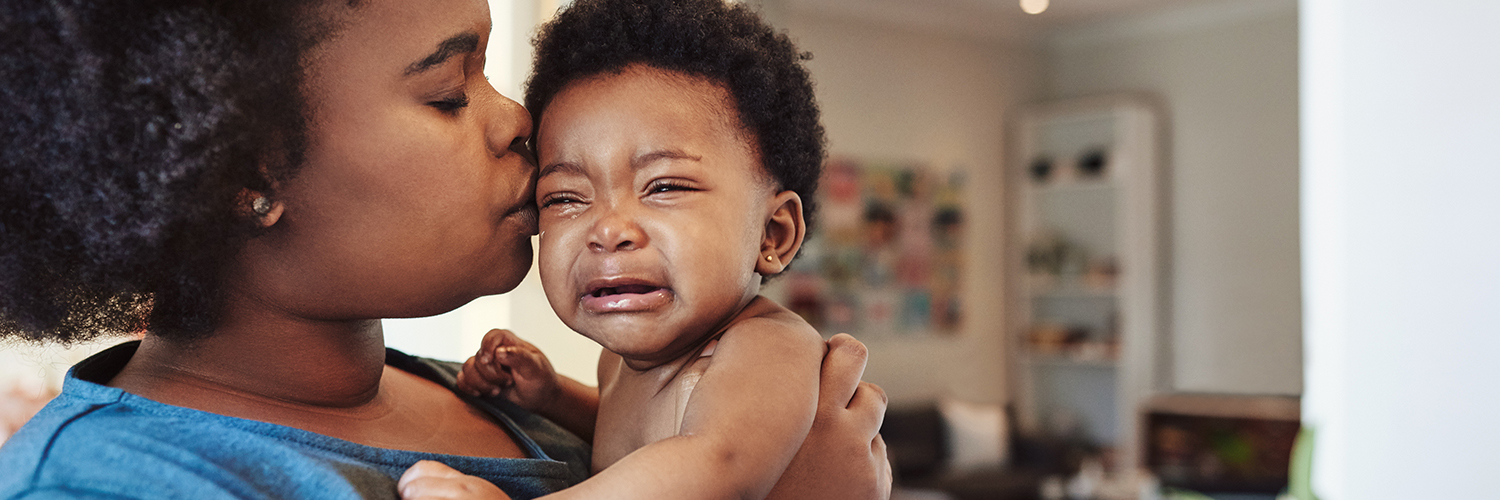As parents, ensuring our little ones’ safety is our top priority, especially when it comes to protecting their delicate heads from injuries. While concussions in infants can seem alarming, being aware of the signs and knowing how to respond can provide peace of mind and prompt action for your baby when needed.
What Are the Signs of a Concussion in an Infant?
A concussion is a mild and temporary head injury that can affect people of all ages, including young babies and children. Symptoms of a concussion typically become noticeable within 24 hours after impact to the head, although they can sometimes take up to three weeks to emerge.
Because infants can’t communicate that they’re in pain or experiencing other symptoms verbally, it can be challenging to know if they’ve had a concussion.
Here are some common signs and symptoms of a concussion in babies to look for:
- Changes in sleep patterns: Increased drowsiness, difficulty waking up or changes in sleep habits
- Changes in eating habits: Loss of appetite, difficulty feeding, or changes in nursing or bottle-feeding patterns
- Irritability or fussiness: Excessive crying, irritability, lethargy or unusual fussiness, even when being held or comforted
- Unusual or excessive crying: Excessive crying that does not seem to be related to hunger, tiredness or discomfort
- Changes in alertness or responsiveness: Decreased responsiveness to stimuli, such as light, sound or touch, and a dazed, confused look on their face
- Vomiting or nausea: Persistent vomiting or nausea, especially if it occurs more than once
- Changes in movement or coordination: Difficulty with balance, coordination or motor skills, such as trouble crawling or walking
How an Infant Might Get a Concussion
Infants are susceptible to head injuries that can lead to concussions due to their developing motor skills and curious nature. For example, infants and babies often fall when learning to stand, walk and pull themselves up, which can sometimes cause them to hit their heads.
Some common scenarios where a baby might experience a concussion can include:
- Falls: Accidental falls from furniture, changing tables, beds, playgrounds, or even caregivers’ arms can result in head injuries, including a concussion. A “serious fall” that poses a risk for concussions is considered a fall from over three feet (or five stairs) for a baby or child under two years old.
- Bumps or collisions: Impacts with hard surfaces or objects, such as furniture corners or toys, can cause head trauma in babies. Falling on hard surfaces, like concrete or tile, is more likely to cause a concussion than a softer surface, such as a carpeted floor.
- Motor vehicle accidents: Injuries sustained during car accidents or collisions can lead to concussions in infants, even if they are properly restrained in car seats.
- Physical abuse: Infants can be at risk of experiencing head injuries from physical abuse, such as shaking or blunt force trauma.
What to Do If You Suspect a Concussion in Your Baby
An infant with a concussion will usually recover on their own within several days to two weeks; however, sometimes it can take up to four weeks or longer for all concussion symptoms to go away.
Still, if you suspect your baby has suffered a concussion, don’t hesitate to contact your pediatrician or seek emergency medical attention right away.
Here’s what to do if you’re concerned about your infant having a concussion:
- Call your pediatrician or seek emergency medical care: Even if the injury seems minor, having your baby evaluated by a healthcare professional as soon as possible after a fall or injury is important.
- Watch for signs of worsening symptoms: Monitor your baby closely for any changes in behavior or symptoms, and seek medical attention if they worsen. Look for signs including:
- Throwing up more than once
- Trouble balancing
- Weakness in the limbs
- Unresponsiveness
- A seizure, which can cause sudden stiffening, jerking movements, staring, rhythmic twitching or loss of consciousness
- Avoid giving your baby medication: Unless instructed by your pediatrician, avoid giving your baby any medication, including pain relievers like ibuprofen or acetaminophen.
At Stony Brook Pediatric Primary Care, our compassionate team of pediatricians is dedicated to providing comprehensive care for infants and children. If you have any concerns about your baby’s health or suspect they may have suffered a concussion, we’re here to help. Contact us to schedule an appointment or seek immediate medical attention if needed.












